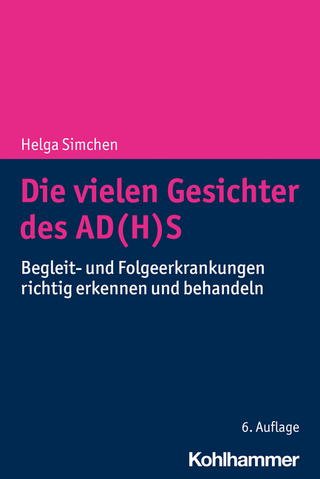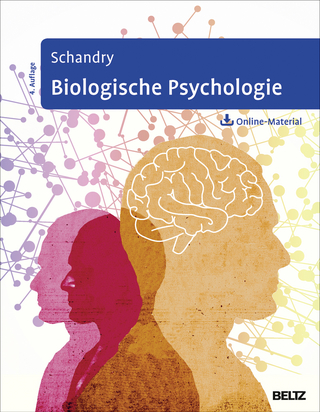
Errorless Learning in Neuropsychological Rehabilitation
Routledge (Verlag)
978-1-138-95925-5 (ISBN)
Errrorless learning is one of the most studied principles in neurorehabilitation. This is the first volume to capture all the key elements in the field in one invaluable resource, providing an up-to-date and broad analysis of the use of errorless learning principles in rehabilitation after brain injury.
With contributions from key researchers in the field, Errorless Learning in Neuropsychological Rehabilitation covers the historical foundations of errorless learning, current understanding of underlying mechanisms which support learning and its use in memory and language in rehabilitation as applied to particular populations across the age span. This volume also addresses questions of efficacy through analysis of research comparing errorless learning with other established learning methods and principles.
Errorless Learning in Neuropsychological Rehabilitation is an essential resource for practitioners, researchers and students of psychology, neuropsychology and rehabilitation.
Catherine Haslam is Professor of Clinical Psychology at the University of Queensland, Australia. Roy P.C. Kessels is head of the Department of Neuropsychology and Rehabilitation Psychology and clinical neuropsychologist at the department of Medical Psychology, Radboud University, The Netherlands.
PART 1 - Errorless learning: introductory, historical and theoretical overview, 1. "Make no mistake": errorless learning and its application in rehabilitation - Catherine Haslam and Roy Kessels, 2. The past, present and future of errorless learning in rehabilitation - Barbara A. Wilson and Jessica E. Fish, 3. Cognitive and neural correlates of errorless learning - Dirk Bertens and Inti A. Brazil, PART 2 - Applying errorless learning in neurorehabilitation, 4. Application of errorless learning in child rehabilitation - Catherine Haslam, 5. Application of errorless learning in adult acquired brain injury rehabilitation - Jonathan Evans, 6. Application of errorless learning in dementia - Roy Kessels, 7. Application of errorless learning in the treatment of acquired communication disorders - Paul Conroy, 8. Application of errorless learning in schizophrenia - Nicolas Cabé and Julien Cabé, 9. Application of errorless learning in alcohol-related cognitive disorders - Yvonne C.M. Rensen, Hélène Beaunieux, Francis Eustache, and Anne-Lise Pitel, PART 3 - Error-based approaches and comparative techniques, 10. Learning from our mistakes: effects of learning errors on memory in healthy younger and older adults - Andrée-Ann Cyr and Nicole D. Anderson, 11. Errors: friend or foe? The theory and evidence base for error-based learning - Tamara Ownsworth, 12. The tyranny of choice: can we choose between errorless learning, spaced retrieval and vanishing cues - Catherine Haslam, PART 4 - Conclusion, 13. Working with error in rehabilitation practice: making the most of errorless and error-based approaches - Catherine Haslam and Roy Kessels
| Erscheinungsdatum | 23.12.2017 |
|---|---|
| Reihe/Serie | Current Issues in Neuropsychology |
| Zusatzinfo | 9 Tables, black and white; 1 Line drawings, black and white; 17 Halftones, black and white |
| Verlagsort | London |
| Sprache | englisch |
| Maße | 156 x 234 mm |
| Gewicht | 240 g |
| Themenwelt | Geisteswissenschaften ► Psychologie ► Biopsychologie / Neurowissenschaften |
| Medizin / Pharmazie ► Gesundheitsfachberufe ► Logopädie | |
| Medizin / Pharmazie ► Medizinische Fachgebiete ► Psychiatrie / Psychotherapie | |
| Medizin / Pharmazie ► Physiotherapie / Ergotherapie ► Ergotherapie | |
| Medizin / Pharmazie ► Physiotherapie / Ergotherapie ► Rehabilitation | |
| ISBN-10 | 1-138-95925-1 / 1138959251 |
| ISBN-13 | 978-1-138-95925-5 / 9781138959255 |
| Zustand | Neuware |
| Haben Sie eine Frage zum Produkt? |
aus dem Bereich


